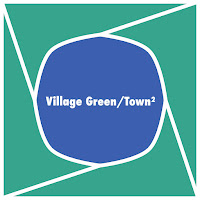My first attempt at writing started out more like a tweet.
As of 7:38, blog is hovering in the neighborhood of “maybe so, maybe not.” There are days like this. Still seeking inspiration. Blog is apparently in limbo. ¯\_(ツ)_/¯
After several hours of spinning my wheels I had to admit that, even if I did eventually write something, most people wouldn’t even see it unless they clicked over during a coffee break.
Coffee. Wasn’t there someone who recently suggested how Village Centers could become the hubs of smaller, tight-knit communities within Columbia’s larger whole and mentioned people gathering in coffeehouses? Yes! It was over on the Columbia Conversation Facebook page.
My first response was a deep longing for a healthy world where we can all hang out in coffeehouses without fear. I’ve generally always been a homebody, but what I would give for the freedom to meet a friend for coffee any time I wanted. It seems like a dream.
Frankly I love the idea of an Essential Coffeehouse for every Village Center. As you might imagine, I’m already fantasizing about transforming the old Second Chance space into the quintessential coffeehouse/community gathering hub. Maybe I’d call it, “The Second Cup.” (Please don’t try to reason with me. I’m enjoying myself.)
I particularly like this idea because I think our culture has put too much emphasis on local gathering places being bars. I don’t mean to suggest that serving alcohol should be outlawed. It just shouldn’t be the only way that communities get together. And while a thoughtful conversation is possible in a bar, it’s often much easier in a coffee shop.
Wait. I just said “coffee shop,” and the original poster used the term “coffeehouse.” Are they just different words for the same thing? After reading this article I’m more confused than ever. The author defines a coffeehouse as follows, and I agree:
A coffeehouse is an establishment that usually sells speciality coffee, espresso drinks, teas, smoothies, assorted pastries, and other food items. The main element of a coffeehouse is the atmosphere. Coffeehouses are places where you can lounge with friends, study, work, read, have a date, and/or socialize while having coffee. The atmosphere is usually inviting with sofas and other seating areas. They may have areas for live music or poetry sessions. Some may have unique qualities like board games, interesting art works, or special events. The point is that a coffeehouse is designed to have you stay in the establishment while you drink your coffee.
But then they lose me at this:
Some examples of coffeehouses are Starbucks, Peet’s Coffee, or Caribou.
Is Starbucks a coffeehouse? I think not. But perhaps that’s because the chain aspect of it renders its atmosphere more standardized and regimented to me. There’s no doubt that Starbucks is wildly popular and that a Starbucks in every village center would probably be a big draw. Financial success is important.
But when I think coffeehouse I do think an inviting atmosphere and live music or poetry sessions. I’m just not sure a chain is going to allow that kind of open-ended quirkiness. Which brings up another thing: revolution.
May I suggest:
From the Ottoman Empire to the American and French Revolutions, coffeehouses have offered a place for (sober) people to discuss new waves of thought. - - Jessica Pearce Rotondi, History.com
I had a vague recollection that coffeehouses were once considered hotbeds of revolution, and the above article spells that out for you.
Sultan Murad IV decreed death to coffee drinkers in the Ottoman Empire. King Charles II dispatched spies to infiltrate London’s coffeehouses, which he saw as the original source of “false news.” During the Enlightenment, Voltaire, Rousseau and Isaac Newton could all be found talking philosophy over coffee. The cafés of Paris sheltered revolutionaries plotting the storming of the Bastille and later, served as the place authors like Simone de Beauvoir and Jean-Paul Sartre plotted their latest books.
Fascinating. Perhaps Columbia's Village Centers each need an Essential Coffeehouse not merely to promote a tight-knit community, but also to percolate our own dreams of Columbia/HoCo revolution.
What do you think?

Comments
Post a Comment